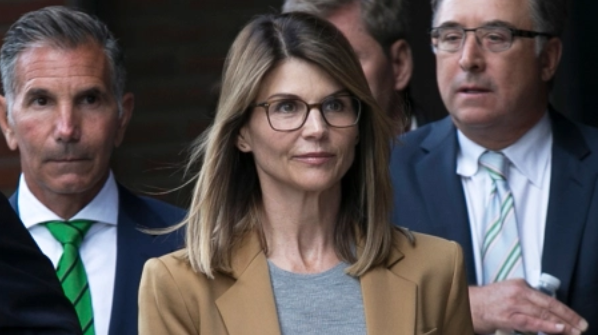Netflix tackles the college admissions scandal that shook the nation in 2019 in new documentary. Photo from variety.com.
The newly-released Netflix documentary “Operation Varsity Blues” paints a cautionary tale of greed, corruption and competition in the college admission process following the 2019 scandal.
The documentary follows the mastermind behind the decades long fraudulent college application process Rick Singer, a self labeled “college admissions coach.” Singer helped hundreds of students apply to prestigious colleges and universities with fraudulent transcripts, many with fake sports qualifications. Students often felt compelled to reach for higher-ranked schools, such as Ivy Leagues, University of Southern California, Stanford University and more, and this competitive mindset is still relevant to this day. As the documentary pointed out, school rankings are largely irrelevant to the level of education that a student receives; it’s all about prestige.
Singer’s “side door” method is highlighted many times throughout the documentary. In short, it was Singer’s way of illegally getting students into high prestige schools. The side door was an option to blend a donation to the school or athletic department and academic ability of the student to receive an acceptance. Singer would also change the racial identity of his clients to make them more diverse and appealing to an admissions counselor.
The athletics department at Stanford demonstrated how destructive the scandal truly was. Singer’s actions and bribes shook the department, and led to the firing of the athletic director and sailing coach John Vandemoer. Coach Vandemoer was the only person directly involved with the scandal to actually participate in the documentary, sharing his side of the story directly on film. His presence felt strange and out of place, considering he was as guilty as Rick Singer and his other clients, yet his story was framed in a way to make him seem innocent.
The standardized test training was also a highlight of the documentary. SAT and ACT coaches have become increasingly popular for students wanting to improve their scores, but test coaches are expensive and are often only available to the wealthy. Fraudulent testing was also prevalent throughout the scandalous process, shown through parents who have faked learning disabilities for their children, allowing them to be able to take a test in a separate setting and have a professional proofread their work and change their answers in order to get a better score.
The most famous incident of the scandal was the case of Olivia Jade and Isabella Giannulli, daughters of actress Lori Loughlin and fashion designer Mossimo Giannulli. Loughlin’s involvement is estimated to have culminated in over $500,000 in bribes sent to the University of Southern California. Loughlin was sentenced to two months in prison and was released in December 2020, while her husband served five months.
All the corruption and competition stems from one thing: money. Making a profit and attaining a higher status motivates many people on all levels of the process, from the master puppeteer Rick Singer all the way to the admissions office, athletics coaches and test tutors. Greed is a powerful motivator for many people and that is highlighted pretty well throughout the documentary.
“Operation Varsity Blues” was mildly eye-opening but it did little to present new information or insights about the entire scandal. I personally did not like the style of this documentary, as the over-dramatization of serious events felt confusing and hard to follow at times.That being said, it did shed light on the problems surrounding the college admissions process , and how competitive and greedy the American education system has become, especially in the past decade.
The influence of social media cannot be underestimated either, what with increased pressure from classmates and friends about which schools they got into weighs heavily on students, which causes even more stress. I felt some of that same pressure last year applying to schools, especially seeing where some of my peers got into or not.
I also feel like the documentary did not do enough to highlight the financial inequities in the college admissions process, as families who are less fortunate have less resources for the process. This left me wanting more from Netflix and “Operation Varsity Blues” in terms of speaking out about social and financial injustices.
Rating: 6/10




